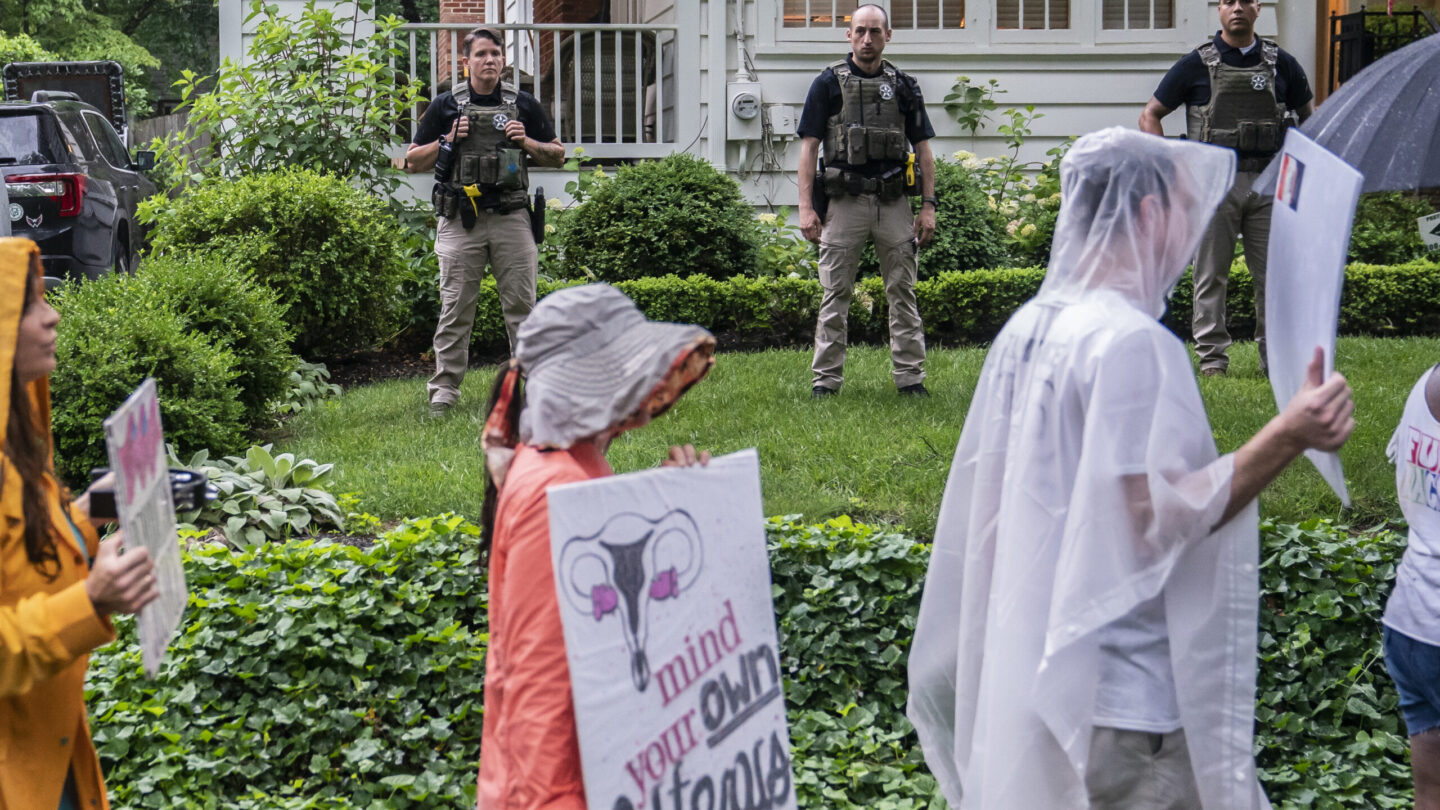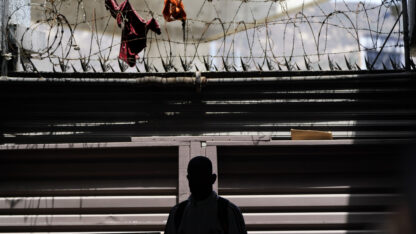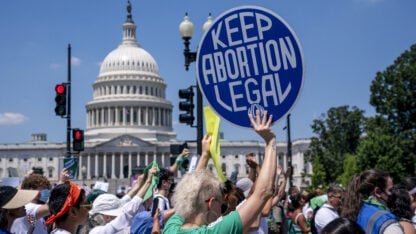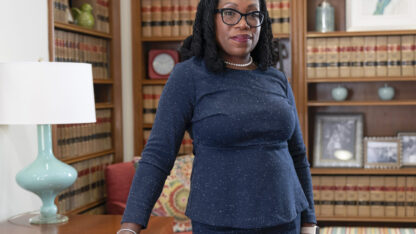In a series of letters sent over the weekend, the marshal of the U.S. Supreme Court called on officials in Maryland and Virginia to “enforce” state and local laws that, she wrote, “prohibit picketing outside of the homes of Supreme Court Justices.”
“For weeks on end, large groups of protesters chanting slogans, using bullhorns, and banging drums have picketed Justices’ homes in Virginia,” Marshal Gail Curley wrote to Virginia Gov. Glenn Youngkin. “This is exactly the kind of conduct that Virginia law prohibits.”
Curley sent similar letters to Maryland Gov. Larry Hogan, along with several Maryland and Virginia county officials.
Curley’s requests come after weeks of protests and picketing outside the homes of the court’s conservative justices in the Maryland and Virginia suburbs of Washington, D.C. The protests began in May after a draft leaked of the justices’ eventual decision to overturn Roe v. Wade.
In June, police arrested an armed man near the home of Justice Brett Kavanaugh after the man called 911 to confess that he was suicidal and had traveled to Maryland with the intent of harming both himself and Kavanaugh. He has since pleaded not guilty to a single charge of attempting to murder the justice.
Law enforcement, both federal and local, has been present at the justices’ homes since the protests began. But the governors of Virginia and Maryland have previously said that responsibility for managing the protests belongs to federal law enforcement.
In a letter sent in May to U.S. Attorney General Merrick Garland, the two governors cited a federal law that explicitly forbids demonstrations at the homes of judges, and they urged Garland to enforce it.
Afterward, at Garland’s direction, the U.S. Marshals Service “accelerated the provision of around-the-clock security” at the justices’ homes, according to the Department of Justice.
Still, the protests have continued, intensifying in recent days after the court’s conservative majority handed down a series of major decisions that aligned with Republican political preferences on abortion, gun control and the government’s ability to address climate change.
On Saturday, a spokesperson for Maryland Gov. Hogan suggested there were First Amendment concerns with the provisions cited by the marshal, and he criticized what he described as the “continued refusal by multiple federal entities to act” on the protests.
“Had the marshal taken the time to explore the matter, she would have learned that the constitutionality of the statute cited in her letter has been questioned by the Maryland Attorney General’s Office,” wrote Michael Ricci in his response to Curley.
“Amid all this, our state and local law enforcement agencies have been on the front lines every day protecting these communities,” he said.
A spokesperson for Virginia’s governor said that Virginia law enforcement would continue to assist, but called on Garland to “do his job by enforcing the much more robust federal law.”
Copyright 2022 NPR. To see more, visit https://www.npr.org.
9(MDAxODM0MDY4MDEyMTY4NDA3MzI3YjkzMw004))

9(MDAxODM0MDY4MDEyMTY4NDA3MzI3YjkzMw004))








